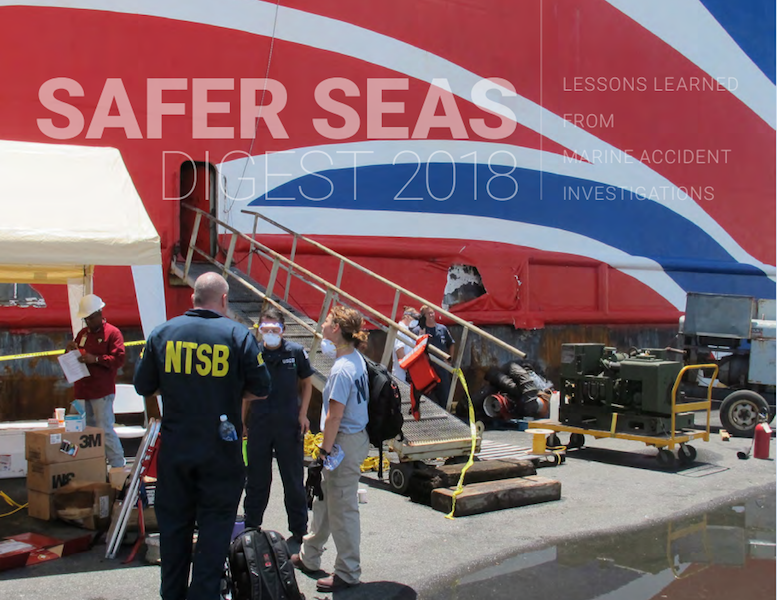The National Transportation Safety Board has released its Safer Seas Digest 2018: Lessons Learned from Marine Accident Investigations. The digest provides a summary of 30 marine accidents, the investigative findings of which were issued or adopted in 2018. These accidents involved contact with fixed objects, breakaways, sinkings, collisions, fires, floodings, groundings, and other vessel damage. The vessels ranged from personal crafts to oceangoing passenger ships and vehicle carriers.

The towboat James H Hunter after an accident in the Cumberland River on June 6, 2017. NTSB photo
The safety issues examined in the 2018 edition of Safer Seas include:
• High-water/high-current conditions
• Watertight integrity
• Training for emergencies
• Remote emergency shutdowns
• Ice accumulation
• Reporting issues
• Cooling water chemistry
• Threaded fasteners and components
• Mooring in strong winds
• Identifying navigation hazards
• Fixed ventillation openings
• Recognizing metal fatigue in propeller shafting
• Precautions while unloading catch
• Alternative emergency communications in the Alaska region
Last year, Safer Seas Digest 2017 included sweeping recommended changes to marine safety that will reverberate for years to come after the seminal sinking of the cargo vessel El Faro, NTSB Chairman Robert L. Sumwalt III wrote in his foreword to the report. "While the investigations recapped here in Safer Seas Digest 2018 drew less public notice, the lessons that can be learned, and the improvements that can be implemented, are likewise impressive," he wrote. "With every investigation we conduct, the lessons that we learn can prevent future losses — when marine stakeholders at all levels of the industry apply these lessons."
Once again this year, towing vessels/barges topped the list of vessels covered in the digest with 12. Commercial fishing vessels was next with seven.




